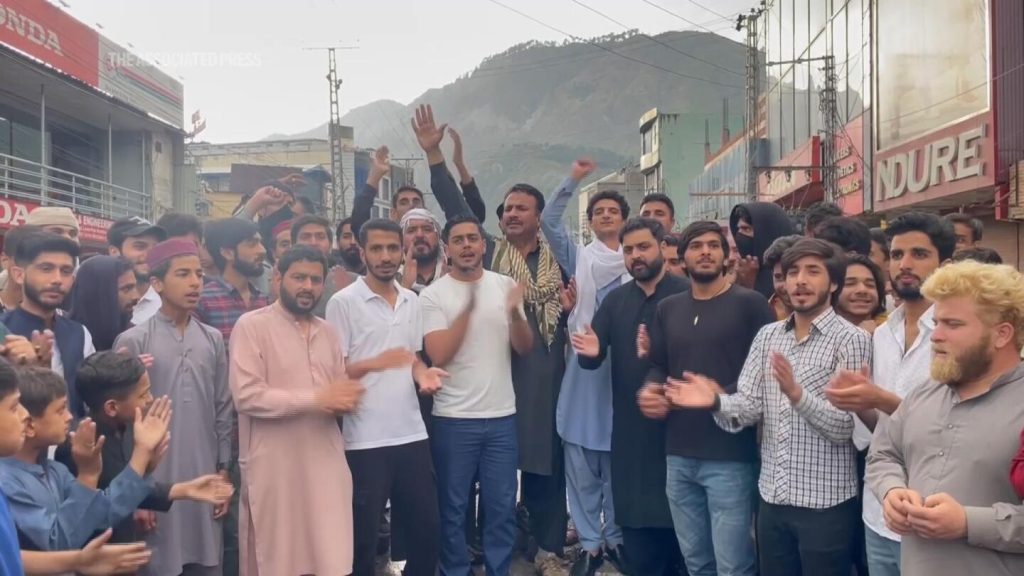The protest in Pakistan-controlled Kashmir turned violent as demonstrators expressed their anger over rising costs of food, fuel, and utility bills. Traders in some cities in Pakistan-controlled Kashmir closed their shutters, while protesters burned tires. A police officer was killed in Dadyal town during the chaos, and several demonstrators were detained by authorities. Chaudhry Anwarul Haq, the prime minister in Pakistan-held Kashmir, stated that he was willing to consider the demands of the protesters but urged them to refrain from violence.
President Asif Ali Zardari of Pakistan called for a meeting to discuss how to calm the protests in the wake of the violence. Pakistan had narrowly avoided defaulting on foreign debts last year with assistance from the International Monetary Fund and other friendly nations. The country’s monthly inflation rate had reached over 40% at one point but had decreased to 17% before talks with the IMF for a new bailout. Pakistan is seeking at least $6 billion from the IMF in the coming months to stabilize its economy.
The protests in Pakistan-controlled Kashmir reflect the widespread frustration and economic hardship faced by many in the region. The rising costs of essential goods and services have placed a significant strain on the population, leading to increased discontent and unrest. The government’s response to the protests will be crucial in determining the outcome and addressing the underlying issues that have fueled the demonstrations.
The violent turn of events in Dadyal town underscores the escalating tensions in Pakistan-controlled Kashmir and the need for swift action to prevent further violence. The death of a police officer and injuries to dozens of people highlight the risks and consequences of unchecked protests in the region. Authorities must work to de-escalate the situation and address the grievances of the protesters in a peaceful and constructive manner.
The willingness of Pakistan’s leadership, including Prime Minister Chaudhry Anwarul Haq and President Asif Ali Zardari, to engage with the protesters and consider their demands is a positive step towards resolving the crisis. It is essential for the government to listen to the concerns of the people and take meaningful steps to address the root causes of the protests. Transparency, accountability, and effective communication will be key in building trust and finding a sustainable solution to the economic challenges facing Pakistan-controlled Kashmir.
As Pakistan moves forward with negotiations for a new IMF bailout, the protests in Kashmir serve as a reminder of the urgent need for economic reform and stability. The government must prioritize the well-being of its citizens and work towards sustainable solutions that address inflation, unemployment, and other economic issues. By listening to the voices of the people and committing to meaningful change, Pakistan can pave the way for a more prosperous and stable future for all its residents, including those in the disputed region of Kashmir.


